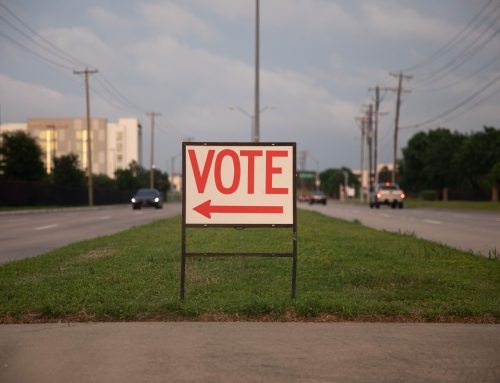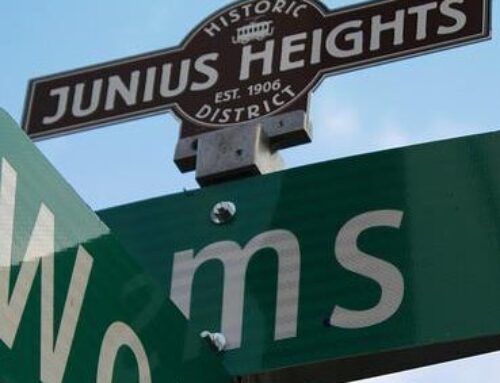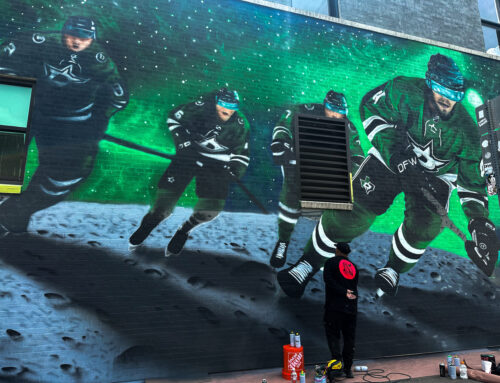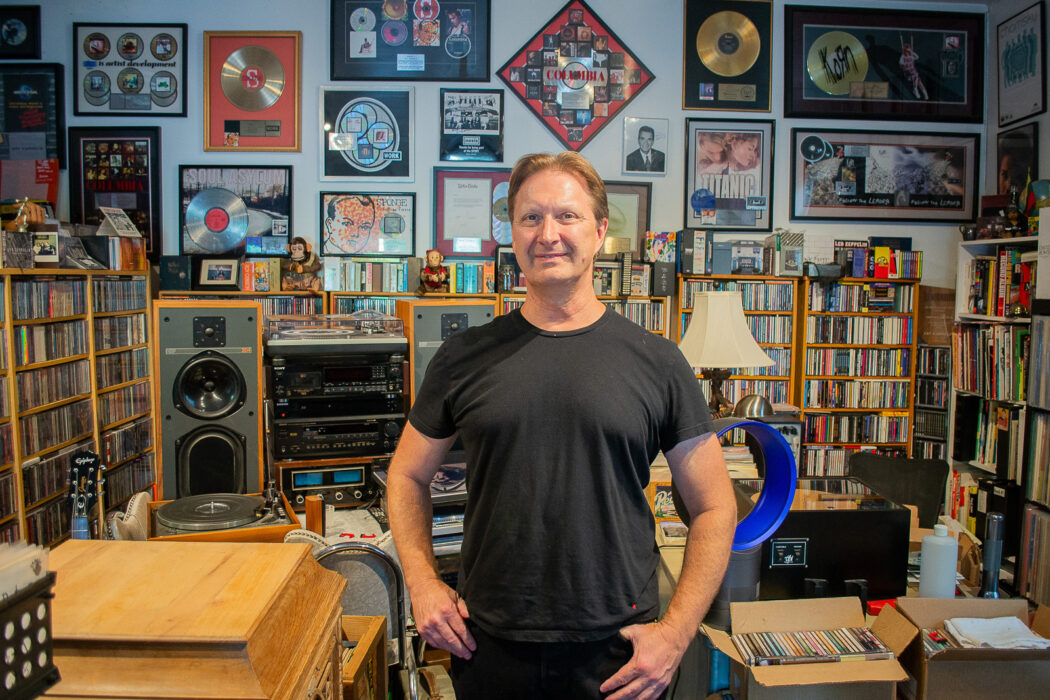
Erv Karwelis grew up in Rockford, Illinois, a town about 90 miles outside Chicago and the birthplace of rock band Cheap Trick. Karwelis’ dad, Butch, belonged to a band called The Thunderbirds. As Butch headed home from a show one night, a drunken driver killed him. He was 24.
“I was just a baby, about 8 months old,” Karwelis says. “I don’t remember much about him other than what people have told me. I still have his guitar. Thank God I never sold it.”
Music might have been a way to feel connected to his dad, Karwelis says.
The Thunderbirds drummer, who is his mom’s cousin, and other Rockford musicians, took young Karwelis under their wing. As a teen he learned guitar and played in some bands, but, he says, “I am no virtuoso musician, and I am kind of shy.” His interest, and talent, lie in the business side of music.
Today Karwelis lives in Lakewood with his longtime girlfriend Rena Pollard. He chose their house on La Vista for its guest quarters — now an office containing a few computers and thousands of records and CDs — from where he operates Idol Records, the label he started in 1993.
If you’ve enjoyed the music of Old 97’s, Lorelei K, Motorcade, The Deathray Davies, Flickerstick, Black Tie Dynasty, Watershed, Vanessa Peters or any from a vast portfolio of Idol Records artists, Erv Karwelis is to thank.
About 60% of the artists Karwelis represents are locals, from the Dallas-Fort Worth area. The Idol Records frontman’s first love is rock, but he backs all genres from all over the world.
After Rock Valley College and University of California Los Angeles, Karwelis booked bands in Chicago until he landed a job at LA’s Tower Records, where in 1990 he saw the complete replacement of vinyls with CDs.
He became a buyer, worked for a couple of independent record labels and then secured a position at Sony Music.
It was the early ’90s — records were out, CDs were in and the world’s first web browser was introduced to the general public. Idol Records got up and running in ’93, while Karwelis was still with Sony. They relocated him to Dallas, which, at first, he was “a little nervous about” due to “the stereotypes of what Texas was, I guess.”
But major record companies including Sony, Universal and Warner had Dallas headquarters. There were tons of record stores and a top-five radio market, Karwelis says, all of which made Dallas attractive to a guy who loves the business side of music.
Another Big D draw: Our city had a phenomenal music scene, he says.
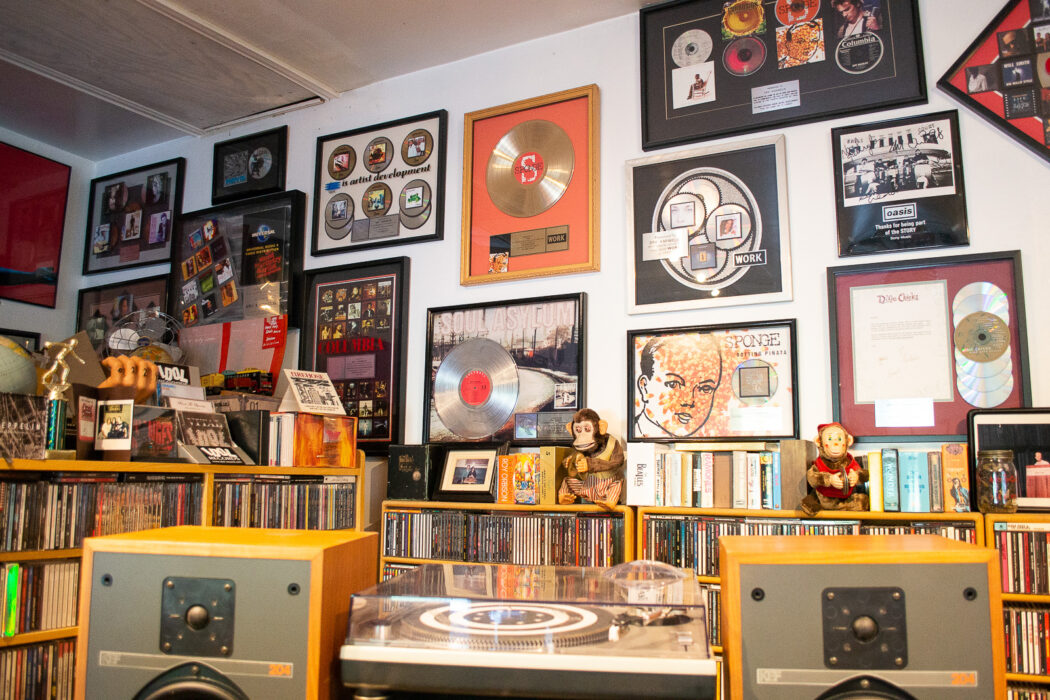
As a newcomer, Karwelis lived near the East Dallas-Deep Ellum border at a significant time in local-music lore, an era when Nirvana or Radiohead was as likely as beloved locals The Toadies or Tripping Daisy (Tim DeLaughter) to be on stage.
“Those days I was meeting people who ran the clubs and checking out bands all the time, at, like, Deep Ellum Live. There were some major bands, too. The first time Pearl Jam played Dallas, they played Trees, and there were like 40 people there,” he says.
The first record he produced was a compilation CD of a dozen local bands, “a showcase of Dallas.”
“Within a year of me putting that out, four of those bands (including Hagfish and Baboon) signed major label deals,” Karwelis says. “It’s funny, too,” he says, that artists he worked with on that 1993 recording are still putting out new music.
For example, Baboon vocalist Andrew Huffstetler and guitarist James Henderson are members of Motorcade, which last year dropped See You in the Nothing.
“They may have kids in college, but they’re still playing,” Karwelis says. “I’ve also got bands whose members are 20 years old. Idol Records was already a decade old when they were born.”

Karwelis has found that the skills and willingness to perform live can make or break an independent band. When live performances stopped for more than a year in 2020 because of COVID-19, it threatened the success of a lot of bands and the label.
Karwelis kept musicians afloat by providing Idol Records music for TV shows, movies and commercials, “everything from big advertisements to reality shows on the Home and Garden TV network.” It was something he learned to rely on during the NAPSTER years, referring to an early-internet site “where everybody’s just getting everything for free.”
“It kept me and us alive when no one was paying for music,” he says. “And luckily, I’d built relationships with music supervisors, the folks who coordinate music for films, TV shows, commercials and agencies.”
Admirals and Dead Flowers were in Chevy truck ads.
Motorcade did a Whataburger commercial. “That pretty much helped us to record their second album.”
Probably the best-known band with which Karwelis has been associated is East Dallas’ Old 97’s, who, themselves, have appeared in TV and films (The Break-Up with Jennifer Aniston and Vince Vaughn, a recent Guardians of the Galaxy). Up-and-comers include Rose Garden Party, Secrecies and Lorelei K, fronted by East Dallas’ buzz-worthy Dahlia Knowles, who just set off on a national tour.
His 30 years running Idol Records have been a “roller coaster,” Karwelis says. “Ups and downs, good times, rough times.”
The Dallas music community has been no stranger to tragedy. A few artists Karwelis has worked with have died — one from COVID-19, at least two from cancer, and one was murdered. Dallas’ music community is so tight-knit and interwoven (many musicians play in multiple bands) that what happens to any member affects them all.
When East Dallas-based Bastards of Soul suddenly lost frontman Chadwick Murray to heart disease last year, it shot a painful ripple through the whole industry. Each member of BoS is also in at least one Idol Records act.
Dallas musicians’ successes, and there have been plenty, are often the result of widespread local support and can feel communal. “It is like a family,” Karwelis says.
Even in an age where anyone can publish their music online, “record labels still definitely have a purpose,” Karwelis says. “You get these bands in front of people and help them navigate the industry.”
That’s Erv Karwelis’ version of being a rock star, and, he says, “It feels good.”


